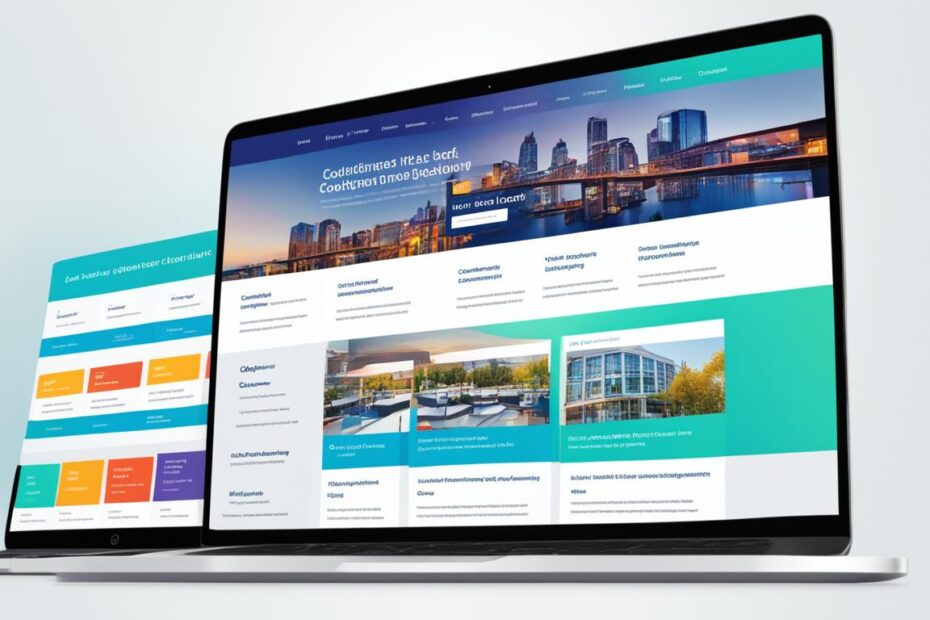In the world of web design, CMS stands for Content Management System. A CMS is a software application that allows you to easily create, manage, and update the content on your website without any technical knowledge. With CMS web design, you have the power to control and modify your website content efficiently and effectively. In this article, we will explore the benefits and features of CMS web design and how it can revolutionize the way you manage your website.
The Advantages of CMS Web Design
CMS web design offers numerous advantages that make it an optimal choice for managing and updating website content. One of the key advantages is its user-friendly interface, which allows even non-technical users to easily add and edit content on their website.
With CMS web design, you don’t need to have extensive coding knowledge or rely on developers to make simple updates. The intuitive interface provides a simple and straightforward method for managing your website’s content, empowering you to take control of your web presence.
Additionally, CMS web design provides flexibility in customizing the look and feel of your website. You can choose from a wide range of pre-designed themes or create your own unique design. The ability to customize your website without coding knowledge allows you to match your brand identity and deliver a seamless user experience.
Scalability is another advantage of CMS web design. As your business grows, you can easily expand your website by adding new pages, features, or even integrating e-commerce functionality. CMS platforms offer robust scalability options, allowing your website to evolve alongside your business needs.
“CMS web design provides the perfect blend of power and simplicity. It empowers non-technical users to manage their website content efficiently while offering extensive customization options and scalability.”
Furthermore, CMS web design is inherently SEO-friendly. Search engine optimization (SEO) is essential for improving your website’s visibility and attracting organic traffic. CMS platforms are designed with SEO best practices in mind, providing features that allow you to optimize your content, meta tags, URLs, and other elements that influence search engine rankings. This helps you achieve higher search engine visibility and drive more targeted traffic to your website.
| Advantages of CMS Web Design | Description |
|---|---|
| 1. User-friendly interface | CMS web design offers a user-friendly interface that allows easy content management for non-technical users. |
| 2. Flexibility | CMS web design provides the flexibility to customize the website’s look and feel, matching your brand identity. |
| 3. Scalability | CMS web design allows for easy scaling, enabling the addition of new pages, features, and functionality as your business grows. |
| 4. SEO-friendly | CMS platforms offer built-in SEO features, making it easier to optimize your website for search engines and improve visibility. |
Choosing the Right CMS for Your Web Design Needs
When it comes to CMS web design, choosing the right CMS for your specific needs is crucial. There are several popular CMS options available, such as WordPress, Joomla, and Drupal. Each CMS has its own strengths and weaknesses, so it’s essential to evaluate factors like ease of use, functionality, and community support before making a decision.
Let’s take a closer look at some of the top CMS options:
WordPress
WordPress is one of the most popular CMS platforms, known for its ease of use and beginner-friendly interface. It offers a vast library of themes and plugins, allowing you to customize your website’s look and functionality. With a large user community and extensive support resources, WordPress is an excellent choice for both beginners and experienced web designers.
Joomla
Joomla is another popular CMS option that offers advanced functionality and flexibility. It provides a robust system for managing content, making it suitable for large and complex websites. Joomla offers a range of templates and extensions to enhance your website’s features. With its strong user community and dedicated support, Joomla is a reliable CMS for web designers looking for more versatility.
Drupal
Drupal is a powerful CMS designed for building complex and highly customizable websites. It offers extensive features and advanced content management capabilities. With Drupal, you have complete control over your website’s functionality and can create unique user experiences. Although Drupal requires more technical expertise, it rewards users with unparalleled flexibility and scalability.
When choosing the right CMS, consider the level of ease in terms of customizing your website, the specific functionality you require, and the level of support available. Evaluate your website goals and requirements to determine which CMS aligns best with your needs.

| CMS Option | Ease of Use | Functionality | Community Support |
|---|---|---|---|
| WordPress | Beginner-friendly | Extensive plugin library | Large user community |
| Joomla | Moderate learning curve | Advanced functionality | Dedicated support |
| Drupal | Technical expertise required | Highly customizable | Strong developer community |
How CMS Web Design Transforms Website Management
CMS web design revolutionizes the way website management is performed, offering a range of benefits that streamline the entire process. One of the key advantages of CMS web design is the ability to have a streamlined workflow, fostering collaboration among multiple users. With CMS, you can easily assign roles and permissions, allowing different team members to contribute to content creation and updates concurrently. This not only enhances collaboration but also ensures a smooth and efficient content management process.
In addition to a streamlined workflow, CMS web design provides robust version control functionality. This feature enables you to track and manage different iterations of your website content, ensuring that only approved changes are published. With version control, you can easily revert to previous versions if needed and maintain a comprehensive history of modifications. This level of control and precision allows you to maintain the quality and integrity of your website effortlessly.
One of the most significant benefits of CMS web design is the time savings it brings. With an intuitive and user-friendly interface, CMS simplifies website management, enabling even non-technical users to easily make updates. The built-in content creation and editing tools eliminate the need for complex coding and reduce reliance on IT resources. This not only saves time but also empowers you to take control of your website efficiently. Whether it’s updating product information, publishing blog posts, or managing multimedia content, CMS web design streamlines the entire process, freeing up valuable time for other crucial tasks.
